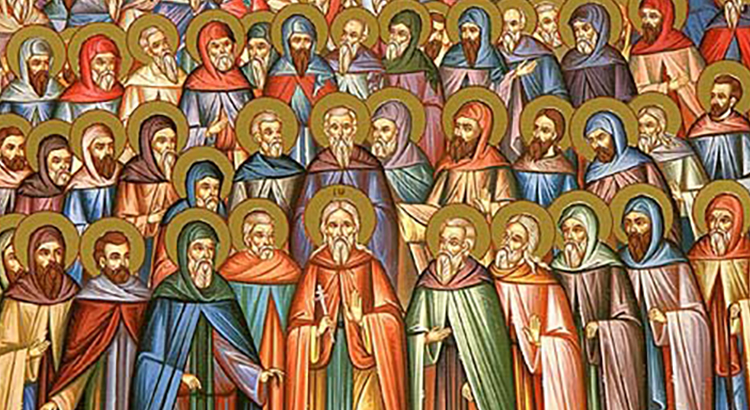Memory of the Saints and the Prophets
Reading of the Word of God
Alleluia, alleluia, alleluia
You are a chosen race,
a royal priesthood, a holy nation,
a people acquired by God
to proclaim his marvellous works.
Alleluia, alleluia, alleluia
Acts 15,1-6
Then some men came down from Judaea and taught the brothers, 'Unless you have yourselves circumcised in the tradition of Moses you cannot be saved.' This led to disagreement, and after Paul and Barnabas had had a long argument with these men it was decided that Paul and Barnabas and others of the church should go up to Jerusalem and discuss the question with the apostles and elders. The members of the church saw them off, and as they passed through Phoenicia and Samaria they told how the gentiles had been converted, and this news was received with the greatest satisfaction by all the brothers. When they arrived in Jerusalem they were welcomed by the church and by the apostles and elders, and gave an account of all that God had done through them. But certain members of the Pharisees' party who had become believers objected, insisting that gentiles should be circumcised and instructed to keep the Law of Moses. The apostles and elders met to look into the matter,
Alleluia, alleluia, alleluia
You will be holy,
because I am holy, thus says the Lord.
Alleluia, alleluia, alleluia
Paul and Barnabas, who had created communities that were made up primarily of Gentiles, did not think that they had to require those who had converted to Christianity to be circumcised. This practice clearly put in discussion the relationship with Judaism that believed circumcision and observance of Jewish practices to be the condition for salvation. Paul and Barnabas, on the contrary, thought that the only faith is Jesus and the Gospel were sufficient. There was clearly the risk of a division between the two perspectives. It became necessary to call an assembly of all the people in charge of the communities to be held in Jerusalem in the presence of the apostles. This first assembly is considered the "first" Council in the history of the Church. The strength of this event is not a judicial one rather it is an expression of the way of being an living of the Church, that is gathering in an assembly of brothers and sisters, in an ordered way, therefore in the name of the Lord and in the presence of the apostles, to reflect and debate over common issues. This first assembly remains an example for the life of Christian communities in every time. It is the way of sinodality that still today Pope Francis has proposed again to the Church. It is in this perspective of communion that the protagonist attitudes of individuals that, if left to themselves, separate and divide can be defeated. Difficulties, that inevitably arise along the road, can be solved only in a fraternal atmosphere: it is the only way in which the unity of the Body of Christ, which is the Church, can be built.
